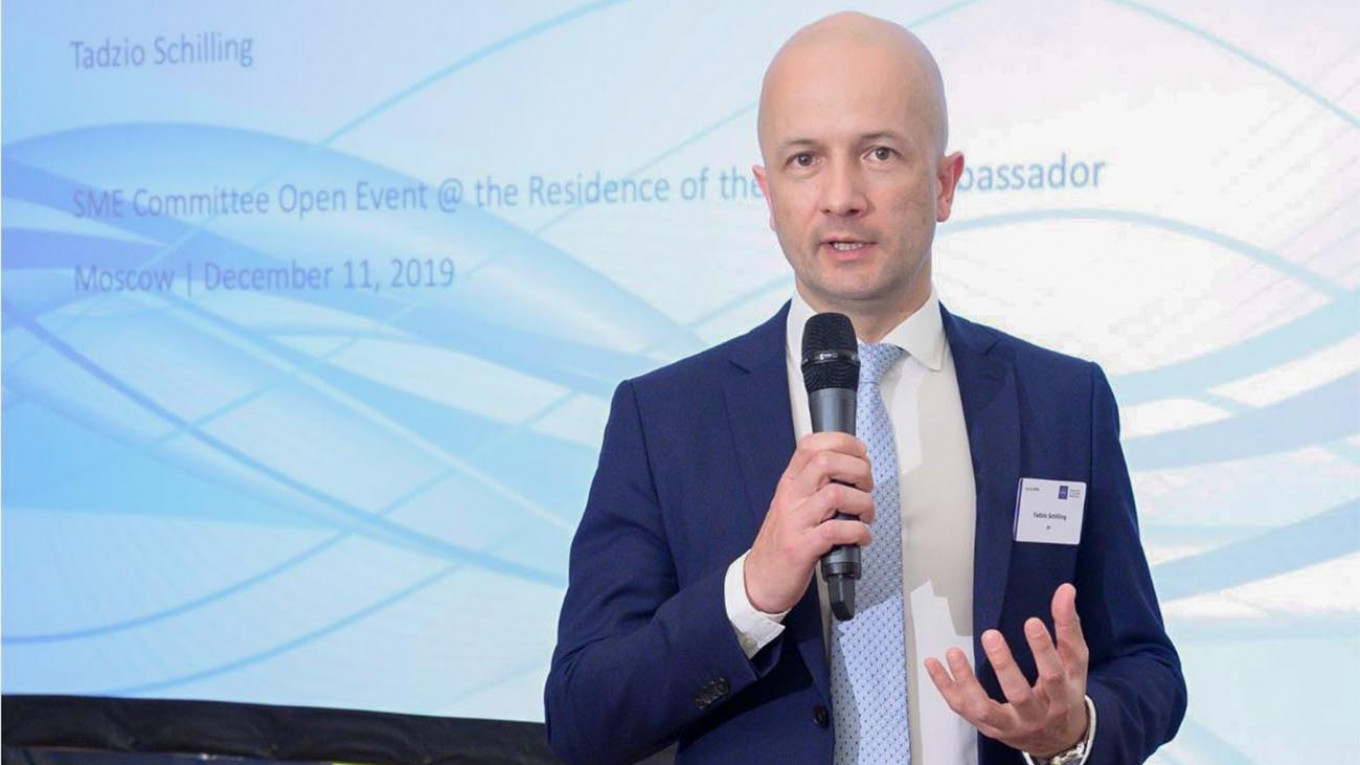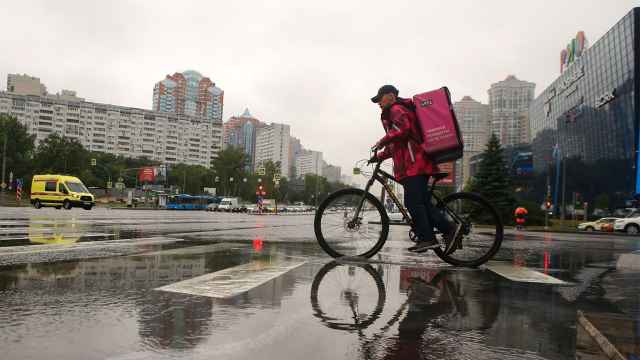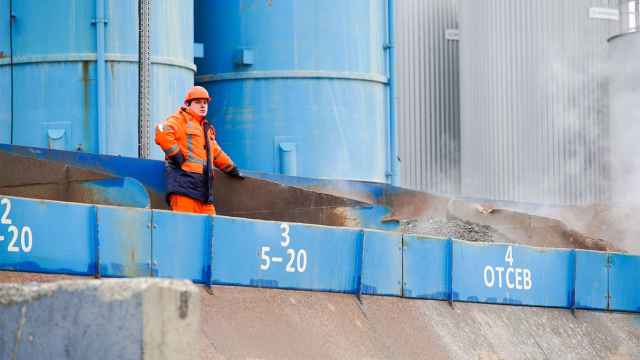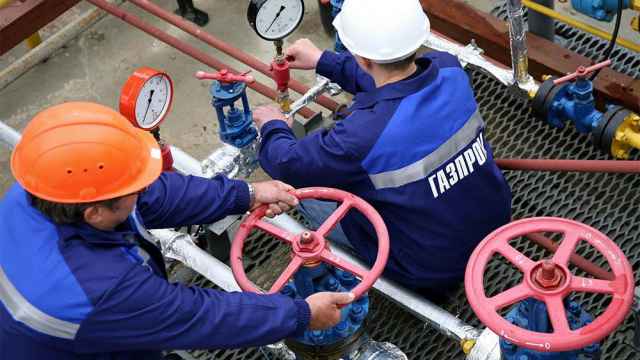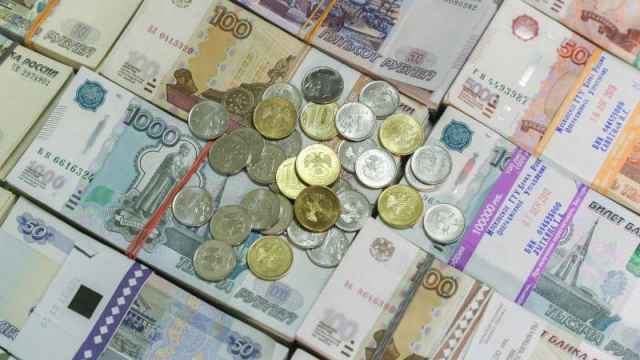The year 2020 was supposed to be one of celebration for the Association of European Businesses (AEB), as the main lobbying organization for foreign companies and investors in Russia is turning 25.
Instead, just three weeks into the job, new chief executive Tadzio Schilling has found himself trying to navigate the AEB’s 500-plus members through the most complicated and potentially devastating economic crisis in the organization’s history.
“The stakes are high,” the 42 year old, who replaced long-serving Frank Schauff at the head of the AEB at the beginning of May told The Moscow Times in his first interview in the role.
“I’m not unhappy about the fact that I’m entering the role at a moment when our members need us most. This is a moment when they face huge and unprecedented challenges, and I’m very glad that I can start by helping them.”
Schilling sees his most pressing task as ensuring the voices of European companies and investors are heard inside the Russian administration. With billions of rubles in support being dished out to get Russia’s economy firing again, he doesn't want the foreigners to be left behind.
“We need to make sure that our members — who have invested billions of euros and dollars in the Russian economy — are perceived as what they are: full subjects of the Russian economy that provide the same kind of employment and value in Russia as Russian organizations,” he said, speaking via video call.
“That’s why we advocate very strongly that there be no discrimation in regard to accessing the support measures and support mechanisms that are being put in place, and to really adopt the perspective of GDP, not a national perspective.”

It’s part of what Swiss-born Schilling calls the “level playing field” he wants Russia to adopt in its economic response to the coronavirus, as he points to what happens once the immediate economic turmoil has passed.
“There is also a day after the crisis and then the question will be how to attract more foreign investment, how to motivate businesses ... to expand their capacities in Russia,” he said.
“Business will remember the extent to which they have been supported during the crisis.”
Securing the attention of the Kremlin — and pressing home demands for higher spending — is not an easy task. One in three Russian businesses say they face bankruptcy, and small businesses in particular feel all but abandoned by the government. Only 13% say they will definitely survive the crisis.
Unlike many European countries, the Kremlin has not unleashed a record-breaking stimulus package to combat the economic costs of the pandemic, with the Russian support program constituting 2.6% of GDP, compared with many European responses at least four times as generous.
A large chunk of Russia’s support has been reserved for businesses operating in what the administration defines as the most severely affected sectors, or individual firms it designates “systemically important.”
That system has resulted in what commentators have dubbed an “unedifying lobbying scramble” to get a place on the list.
Some of the largest foreign companies, including McDonald’s, Ikea, and Procter and Gamble made the cut. Others have not been so lucky.
“We have companies who are not included in the list of systemic enterprises who have invested a lot of money in Russia and who, to some extent, are now left a bit alone,” Schilling said.
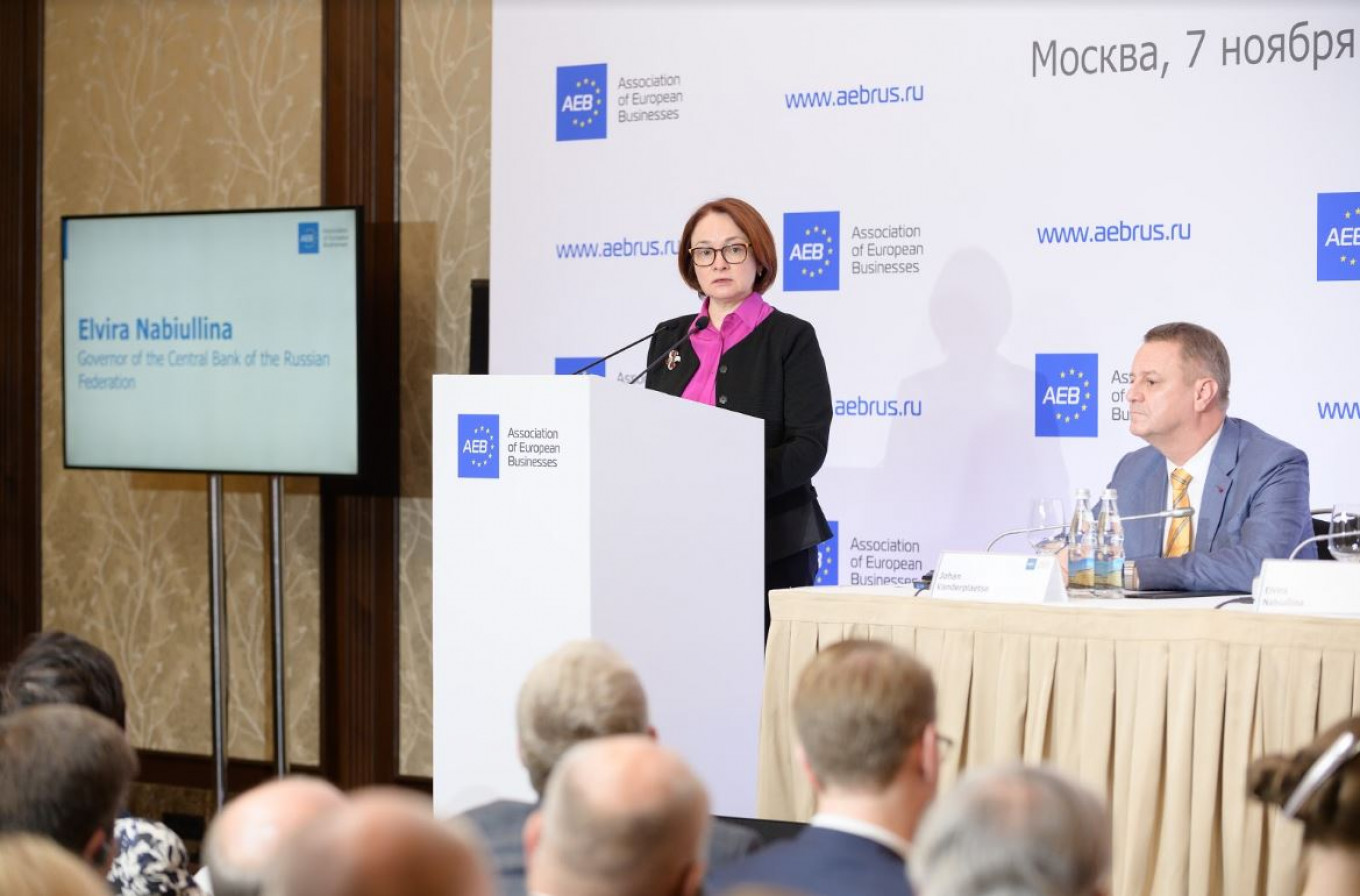
The AEB said it feels its concerns are being heard by the Russian government. But pointing to the frantic pace at which new laws, regulations and support schemes are being rolled out, Schilling admitted: “We do not yet have all the answers that we would like to have.”
One area that could prove a source of future contention is the surprise tax changes announced by President Putin in his first address to the nation on the coronavirus, when he pledged to hike taxes on dividend payments sent abroad and threatened to unilaterally withdraw Russian from double taxation treaties if other countries didn’t agree.
Dividend payments are the main way Russian-based subsidiaries of foreign firms send their profits back home. The changes — which are understood to be targeted at reducing tax incentives for Russian multinationals who headquarter themselves in low-tax jurisdictions such as Cyprus, Luxembourg or The Netherlands — could triple the tax rates genuine European firms pay on those dividends.
“Such an increase ... is likely to have a great negative impact on foreign investments in the Russian economy,” said Sergei Eremin, a senior associate at law firm Herbert Smith Freehills.
Schilling and the AEB are also concerned. The organization has set up a dedicated working committee to focus on the issue. “We need to follow this process very closely and to make sure that in their attempt to achieve their goals there will be no collateral damage for international investors,” Schilling said.
The Russian government has made no secret of its desire to attract more foreign direct investment (FDI), but critics point to a dubious track record when it comes to laying the necessary foundations. Potential disregard for international treaties and higher wealth taxes might not assuage concerns.
Still one of the biggest barriers to stronger economic ties between Europe and Russia remains geopolitical: sanctions. In the six years before Russia annexed Crimea, 245 billion euros flowed into Russia from Europe in foreign investment. In the six years since, that figure has fallen by more than 80%.
The AEB has never been shy in calling for the removal of sanctions, and that is not going to change under new leadership.
“There are business opportunities that cannot be used, there are areas where no collaboration is possible. It’s still an issue which is very relevant, and it would be better if earlier than later there would be a way to remove these barriers,” said Schilling, who was a diplomat at the Swiss embassy from 2012 to 2015.
While not naive about the slim prospects of a breakthrough, he hopes the coronavirus crisis could create a “margin for manoeuvre” when it comes to a rethink in the economic relationship between Moscow and Brussels.
Pointing to collaboration such as international shipments of medical supplies, Russia considering relaxing some of its import restrictions and the EU including Russia in its emergency coronavirus funding programs, Schilling sees “positive signals on both sides.”
“The question now is whether this is the start of a bigger process. Can we grow on these first building blocks to create a new bridge between Russia and the European countries? I most certainly hope so, but I also understand the nature of the issues at stake. We have to be realistic: without addressing the fundamental issues, it is not very likely that everything will simply turn beautiful again.”
Despite sanctions, the slowdown in investment and Russia’s sluggish growth over the last five years, business ties between Europe and Russia are still significant. Over half the stock of FDI in Russia is from the EU — even after stripping out Russian reinvestment through Cypriot and Dutch holding companies, a study by Belgium-based think tank Bruegel found.
But in pushing its message of a “level-playing field,” the AEB is not just counting numbers. Its website features stories of European businesses helping Russia in its fight against the coronavirus by donating personal protective equipment (PPE), disinfectants and, in the case of Mercedes Benz, even cars, to Russian hospitals.
“I hope that our Russian colleagues have seen that we have not run away from Russia. We have stayed here,” Schilling said.
“I am sure that Russia and the Russian people will remember that European business stood with Russia in the current crisis, as Russia has always remembered this kind of loyalty.”
A Message from The Moscow Times:
Dear readers,
We are facing unprecedented challenges. Russia's Prosecutor General's Office has designated The Moscow Times as an "undesirable" organization, criminalizing our work and putting our staff at risk of prosecution. This follows our earlier unjust labeling as a "foreign agent."
These actions are direct attempts to silence independent journalism in Russia. The authorities claim our work "discredits the decisions of the Russian leadership." We see things differently: we strive to provide accurate, unbiased reporting on Russia.
We, the journalists of The Moscow Times, refuse to be silenced. But to continue our work, we need your help.
Your support, no matter how small, makes a world of difference. If you can, please support us monthly starting from just $2. It's quick to set up, and every contribution makes a significant impact.
By supporting The Moscow Times, you're defending open, independent journalism in the face of repression. Thank you for standing with us.
Remind me later.



